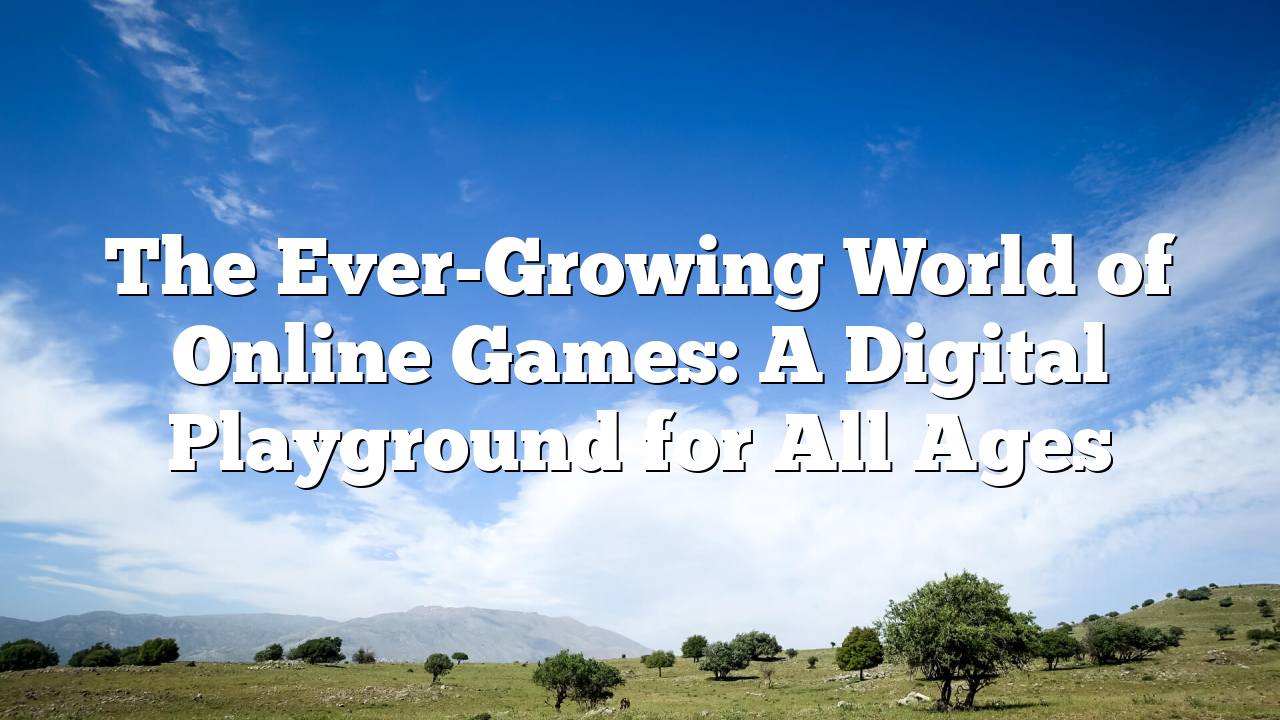Online games have transformed from simple pixel-based experiences into complex virtual worlds connecting millions of players worldwide. Over the past two decades, the online gaming industry has grown into a global powerhouse, influencing entertainment, social interaction, and even professional careers.
What Are Online Games?
Online games are video games that require an internet connection to play. They can range from casual mobile games to massive multiplayer online musang4d role-playing games (MMORPGs) like World of Warcraft or Final Fantasy XIV. These games allow players to connect, compete, or collaborate with others regardless of geographical boundaries.
The Rise of Online Gaming
The boom of online games began in the early 2000s with improved internet infrastructure. As broadband became more accessible, so did online multiplayer features. Consoles like the Xbox and PlayStation integrated online capabilities, and PC platforms such as Steam offered a centralized marketplace for digital games.
Today, free-to-play games like Fortnite, League of Legends, and Valorant dominate the scene, supported by in-game purchases and seasonal content updates.
Social and Cultural Influence
Online games are more than just entertainment—they are social platforms. Players form friendships, join guilds, and build communities. Platforms like Discord further enhance this social element, allowing gamers to voice chat, share media, and collaborate in real-time.
In many cases, online games have helped bridge cultural gaps, allowing players from different countries to interact and share experiences. Virtual events, such as in-game concerts or global esports tournaments, draw millions of viewers and participants.
Economic Impact
The online gaming industry is worth hundreds of billions of dollars. Game developers, streamers, esports athletes, and content creators all contribute to this ecosystem. Professional gaming is now a legitimate career path, with top esports players earning salaries, sponsorships, and tournament winnings.
In-game economies have also created opportunities for players to earn real-world money through trading items, streaming content, or participating in competitive events.
Challenges and Controversies
Despite its success, online gaming faces challenges. Issues such as addiction, cyberbullying, and cheating remain concerns. Additionally, some games feature pay-to-win mechanics, which can create unfair advantages and frustrate players.
Game developers continue to address these concerns through better moderation tools, parental controls, and more balanced game design.
The Future of Online Gaming
The future of online gaming is promising. With advancements in virtual reality (VR), augmented reality (AR), and cloud gaming, the possibilities are endless. Technologies like AI and blockchain may also revolutionize game mechanics and ownership rights.
In summary, online gaming is more than just a pastime—it’s a cultural phenomenon that continues to evolve and shape the way we connect, compete, and play.











Leave a Reply